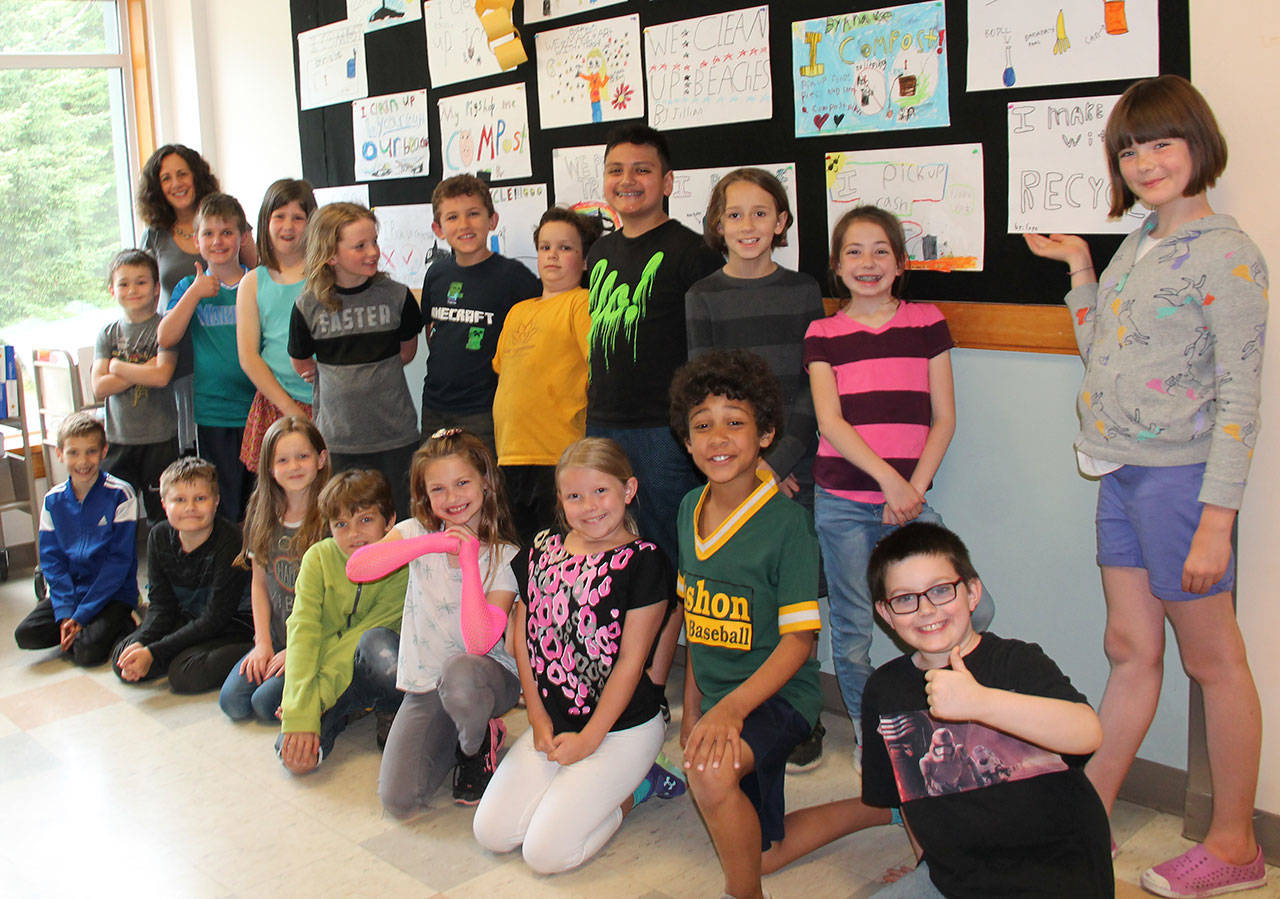Editor’s note: this commentary follows an article that originally appeared in the June 13 issue of The Beachcomber about 3rd-grade students at Chautauqua Elementary School and their study of ecosystems in the Salish Sea. They were recently interviewed by King 5 News for their efforts to raise awareness around the plight facing Southern Resident orca whales.
Did you know that every year the 3rd graders at Chautauqua do Action Network? Action Network is where we find something important and then we figure out solutions to help. We learned about five local issues:
- homelessness
- hunger/food scarcity
- salmon
- orcas
- elders
Then we voted and decided which one we would like to do this year.
We are trying to help salmon and orcas because they might go extinct. Did you know salmon have been on the threatened species list since 1999 and orcas have been on the endangered list since 2005? Currently, there are only 75 southern resident killer whales left in Puget Sound. Salmon and orcas depend on each other because if there are no salmon, then orcas will go extinct. It matters because it would totally change the food chain. If orcas go extinct, over time there could be too many salmon because there are no orcas to eat them. Then there would be less plankton. If the salmon don’t have enough plankton, the salmon will starve and then they would both be extinct.
Our class would like to grow up with salmon and orcas and have our children grow up with salmon and orcas. Could you imagine us only being able to tell our kids about orcas and salmon but them not ever getting to see them with their own eyes? Scientists discovered that the baby killer whales are dying more than grown-up killer whales and all of the pods need our help. There are three different pods. As of January 11, 2019, the J-pod has 22 orcas, K has 18 orcas and L has 35 orcas.
Do you really care about the orcas and salmon? Well, we do! We really want to help these beautiful creatures! We are going to put down medallions next to storm drains on Vashon to save our beloved orcas and salmon. A medallion is a rectangle that has words that are trying to persuade people not to pollute. The medallions say, “No dumping! Drains to waterways”.We are putting them down because the medallions will tell people on Vashon that there is a waterway starting there. A problem for orcas and salmon is when people pollute, they are not realizing what they are doing to the environment. Some of that pollution goes into the drains and then into Puget Sound. We asked King County if we could put medallions down on the King County roads but they said no because we are kids. They said we had to be 18 years old. So instead we are asking different businesses if we can glue the medallions down on their property.
That was our first project. Now, we have a second project. Did you know that there is no map of storm drains on Vashon? Well, that is going to change! King County asked us to make a map of the storm drains on Vashon and we said yes! We are going to make a map by taking photos of the storm drains and sending them to King County with their geotag. Then they will make a map.
Top 10 Ways You Can Help Salmon and Orcas:
You can help salmon and orcas — we will explain!
You can use less electricity. When you are done playing video games, turn off your device. You can walk, ride a bike, ride a horse or take the bus. One less car! Put up solar panels. Use electric cars, scooters, bikes and motorcycles instead of gas.
You can help orcas by not polluting. If you see trash, pick it up. If you find a garbage can, put it in there. Or do what they do in Tokyo: put it in your pocket and throw it away later.
When you need to wash your car, go to an environmentally-friendly car wash. You can use less water or reuse water. You can make a rain garden near storm drains. It helps clean the water before it goes down the storm drain. You can make a green roof on your house.
Thank you for reading. We hope you understand that the orcas and salmon are important to us. And you are amazing if you do these things to help.
— Ms. Marjorie Butcher’s 3rd-graders



